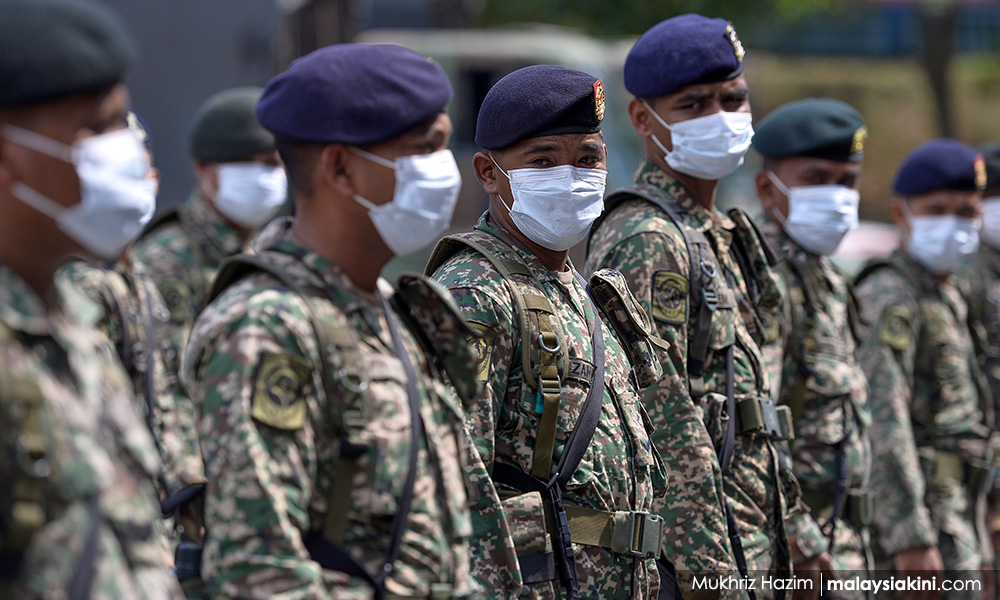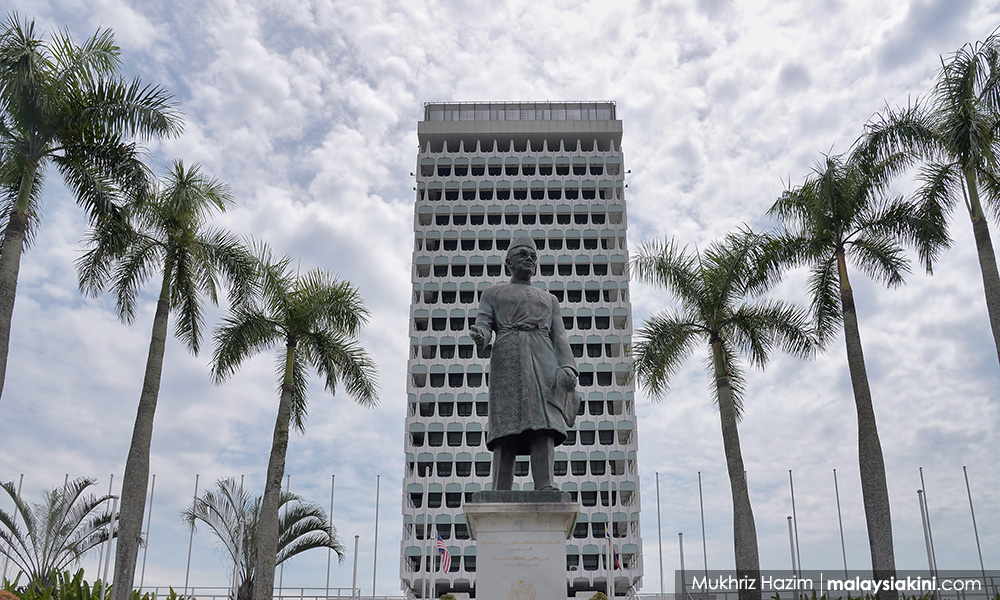The details of the Emergency (Essential Powers) Ordinance 2021 which is to be applied retroactively from Jan 11, 2021 have been made public by the Attorney-General's Chambers and provides the executive with sweeping powers as indicated by Prime Minister Muhyiddin Yassin in his announcement on Jan 12.
The Ordinance covers a range of governance issues including the suspension of parliamentary and state elections, the power of the executive to make regulations, the establishment of an independent special committee, the provision for temporary seizures of assets and resources, additional powers to the armed forces and special powers to directions for treatment, immunization, isolation, observation or surveillance (in relation to Covid-19).
Among the questions posed by the document which is promulgated by the Yang di-Pertuan Agong Sultan Abdullah Sultan Ahmad Shah on Jan 14, is that it does not appear to have a date of termination and does not state a timeframe for when the powers will cease to apply.
Notably, those who violate the provisions for temporary seizures of assets and resources will be liable to a fine of RM5 million or 10 years' jail or both.
"By reason of the existence of a grave emergency threatening the security, economic life and public order of the Federation arising from the epidemic of an infectious disease, namely Coronavirus Disease 2019 (Covid-19), a Proclamation of Emergency has been issued by the Yang di-Pertuan Agong under Article 150 of the Federal Constitution," states the gazetted Ordinance.
For so long as the emergency is in force, the prime minister and the cabinet existing immediately prior to the issuance of the Proclamation of Emergency on Jan 11, 2021 have been conferred the executive functions and shall continue to exercise the executive authority of the federation.
The Ordinance grants similar powers at the state level to the existing menteri besar or chief minister and their state executive councils.
Among the highlights of the Ordinance are the formation of an independent special committee to be appointed by the King to advise him on the continuing existence of the grave emergency threatening the security, economic life and public order of the federation arising from the epidemic.
When announced by Muhyiddin, it appeared that the committee would also have members of the opposition, but the Emergency Ordinance does not make that a requirement.
For so long as the emergency is in force, the Yang di-Pertuan Agong or any person authorised by the Yang di-Pertuan Agong, may also appoint any person to issue directions for treatment, immunisation, isolation, observation or surveillance under paragraphs 11(3)(a) and (b) of the Prevention and Control of Infectious Diseases Act 1988 [Act 342].
The Ordinance also gives provides for the power for the King or any authorised persons to take temporary possession of land, buildings or movable property for so long as the emergency is in force.
It also enables the King or any authorised person to demand any resources to be utilised for any purpose the Yang di-Pertuan Agong or any person authorised by the Yang di-Pertuan Agong deems necessary.
It provides for the imposition of any fees or charges that may be imposed by the person whose resources are demanded.
Among the resources covered are human resources, facilities, utilities and assets, and the controller or manager of such human resources, facilities, utilities and assets.
The Ordinance provides for compensation for the possession of the land, buildings, movable property or resources to be assessed by a person authorised by the Yang di-Pertuan Agong.

Any person who contravenes the sections covering the possession of the land, buildings, movable property or resources or fails to comply with any demand or direction of the Yang di-Pertuan Agong or any person authorised by the Yang di-Pertuan Agong is deemed to have committed an offence and shall, on conviction, be liable to a fine not exceeding RM5 million or to imprisonment for a term not exceeding 10 years or to both.
Additional powers of armed forces
For so long as the emergency is in force, the Armed Forces, upon direction by the Yang di-Pertuan Agong or any person authorised by the Yang di-Pertuan Agong, shall have all the powers of a police officer of whatever rank as provided for under the Criminal Procedure Code [Act 593] and such powers shall be in addition to the powers provided for under the Armed Forces Act 1972 [Act 77] and not in derogation thereof.
The Ordinance also provides for the power to exempt a healthcare professional from the requirement to comply with the address of the principal place of practice specified in any annual practising certificate or its equivalent.
It also gives the government and its officers protection against lawsuits and legal proceedings.
Election of Parliament
For so long as the emergency is in force, the requirement to fill vacancies of the Dewan Negara and Dewan Rakyat within 60 days as per Article 54 of the Federal Constitution is suspended.
"For the avoidance of doubt, for so long as the emergency is in force, Clause (3) of Article 55 of the Federal Constitution shall have effect as if the words “for five years from the date of its first meeting and shall then stand dissolved” have been deleted," reads the Ordinance.
This formally frees the prime minister from having to call elections for so long as the emergency is in force.
A similar rule applies to state government leaders.

Parliamentary sitting
The Ordinance states that for so long as the emergency is in force the provisions relating to the summoning, proroguing and dissolution of Parliament in the Federal Constitution shall not have effect and that Parliament shall be summoned, prorogued and dissolved on a date as the Yang di-Pertuan Agong thinks appropriate.
Any meeting of the Parliament which has been summoned before the coming into operation of this Ordinance but has not been held is cancelled. The Ordinance covers a range of governance issues including the suspension of parliamentary and state elections, the power of the executive to make regulations, the establishment of an independent special committee, the provision for temporary seizures of assets and resources, additional powers to the armed forces and special powers to directions for treatment, immunisation, isolation, observation or surveillance (in relation to Covid-19).
Power to make regulations
For so long as the emergency is in force, the Yang di-Pertuan Agong may make regulations, as may be necessary or expedient, for the purpose of carrying into effect the provisions of this Ordinance. Powers under the Ordinance shall be in addition to the powers under other written laws.
"The powers given under the Ordinance shall be in addition to, and not in derogation of, the powers given by or under any other written law for the time being in force," it reads.
Notably, in the event of any conflict or inconsistency between the provisions of the Emergency Ordinance and any other written law, the provisions of the Ordinance shall prevail and the conflicting or inconsistent provisions of such other written law shall be deemed to be superseded to the extent of the conflict or inconsistency.
Read the full Emergency Ordinance here:
- Mkini




No comments:
Post a Comment
Note: Only a member of this blog may post a comment.